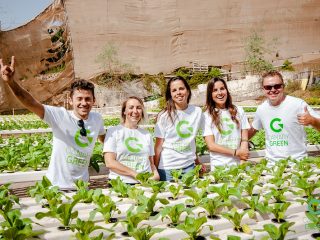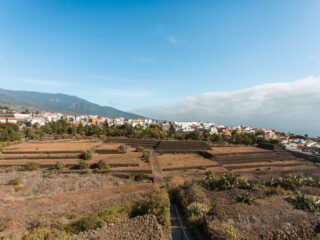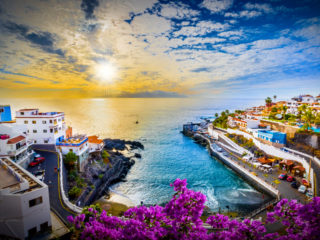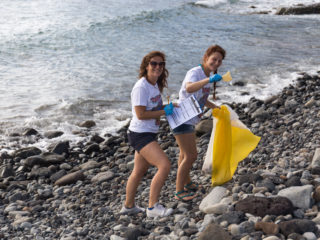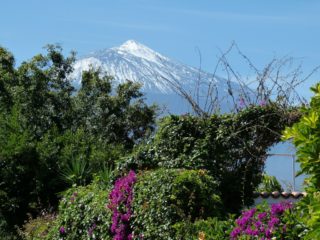Dunking a wedge of bread into the fat oozing from my mum’s Sunday roast is as far as I ever got into recycling cooking oil. Times have changed and giving us a good old greasy fry up is no longer the end of the story for our liquid friend. Reciclar Canarias are one of several companies across Tenerife collecting used oil from all the bars and kitchens that churn out our favourite foods. Taking a deep breath I plunged into the green world of their Marazul factory expecting to find a greasy swamp buzzing with flies. The reality is a slick operation with hardly a whiff or a cremated chip in sight.

John Sommers has been running Reciclar for the last year and they now collect from 300 outlets around Tenerife including hotel chains, fast food outlets and theme parks. “I could see there was a demand for biodiesel and bio fuel with prices rising all the time and legal demands for businesses to dispose of their used oil in a responsible way. Since 2000 there has been a legal requirement to bars, restaurants etc to have an authorised waste collector.”
Sadly Tenerife is lagging behind some countries in the recycling process, as yet there is no facility here to turn the oil into useable fuel. Reciclar purifies and filters it before sending it on to mainland Europe by boat for the full process to take place. So what is the difference between bio fuel and biodiesel? “Bio fuel is purer but biodiesel undergoes a chemical treatment involving methanol and a catalyst under heat to separate off glycerine.”
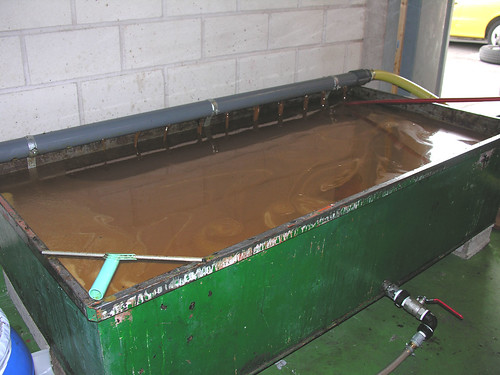
As I poke around the 1,000 litre vats of treated oil, soon to be replaced by 10,000 litre holders, a new collection comes in and I’m promised that as I watch the filtering process it will put me off fried food for good ““ they don’t know my appetite very well. For some reason I can’t help thinking of chocolate as the oily gunge spurts into its bath, raking through it soon leaves a residue of crispy remnants ““ anyone for crackling? This solid waste is bio degradable and easily disposed of.
The possibilities of recycled fuel are immense and as John points out many motorists will already be using some biodiesel. “You can see it now at the pumps as B5, B10 and B20, the numbers refer to the percentage of biodiesel mixed in with the more conventional product. Already here we could probably produce enough fuel to run all the taxis in Arona or Adeje. Cars can be fairly easily converted to biofuel (if they are diesel, they can already take biodiesel) for anything up to 1,000 pounds for a large car, that depends on if you have a full system or a twin tank which means you use ordinary fuel to get going and the biodiesel kicks in after about 5 minutes.”
It seems the way forward, certainly in Tenerife, is a willingness and commitment from the councils and government to embrace recycled fuels and produce it on a large scale. The big oil companies are of course less than happy with this idea so it could be a long process. In the meantime maybe we can do our bit by tucking into as much oil cooked food as possible, I’m on the case immediately.
FACT FILE
Reciclar Canarias is based at Unit 2 at the Texaco station in Marazul between Callao Salvaje and Abama Golf. Tel 922724169 info@reciclarcanarias.com
